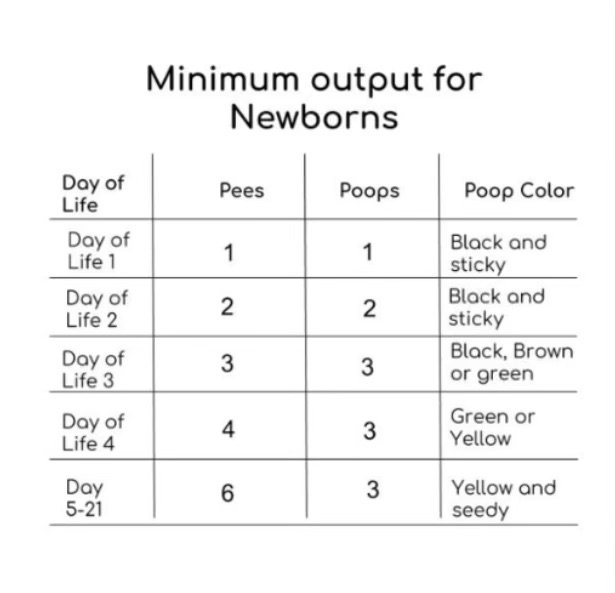How to know you are making enough milk
As a breastfeeding parent, it is common to worry about whether or not you are producing enough milk for your baby. It's understandable to feel this way because you cannot see how much milk your baby is actually getting during feeding and society has really not taught women and birthing parents to trust their bodies. I want to share that there are several signs you can look for to help you determine if you are making enough milk. In this post, we'll discuss these signs and provide some tips to help boost milk production if necessary.
Wet and Dirty Diapers
One of the most reliable signs that your baby is getting enough milk is if they have wet and dirty diapers. In the first few weeks of life, your baby’s output will increase until they have 6+ wet diapers and 3+ dirty diapers per day. If your baby has fewer wet or dirty diapers than this, it could be a sign that they are not getting enough milk.Weight Gain
Another sign that your baby is getting enough milk is if they are gaining weight appropriately. Your baby will probably lose weight for the first 3-5 days of life and then begin to gain. In the first few months of life, your baby should gain a minimum of 5 ounces per week. Around 4 months, weight gain will slow down a bit. If your baby is not gaining weight appropriately, it could be a sign that they are not getting enough milk.Swallowing Sounds
When your baby is breastfeeding, you should be able to hear them swallowing. This is a good sign that they are actively nursing and getting milk. If you don't hear swallowing sounds, it could be a sign that your baby is not latching properly or not getting enough milk.
Tips for Boosting Milk Production
If you are concerned that you are not producing enough milk, I suggest you start by check in with yourself about why. Is your baby not showing the signs described above or is it that you want to be making a bit (or a lot) more than what your baby needs? It is so common to feel pressure to make tons of milk, especially with images of parents who have freezers full of milk all over social media. Most babies after 4 weeks need about 25oz in every 24 hours. Keep in mind that trying to make your body to overproduce is VERY hard to do. If you do believe that your supply is low there are several things you can do to boost milk production:
See a Lactation Consultant: IBCLCs are trained to evaluate the whole situation and put together a plan that makes sense for you and helps you meet your goals.
Nurse or pump more frequently: The more often you stimulate your nipples, the more milk your body will produce.
Make sure your baby is latching properly: If your baby is not latching properly, they may not be getting enough milk.
Pump after feedings: Pumping after feedings can help increase milk production.
Stay hydrated: Make sure you are drinking plenty of water and other fluids.
Get enough rest: Rest is important for milk production. Try to rest in between feedings. Be sure you are asking for help.
In conclusion, there are several signs you can look for to determine if you are producing enough milk for your baby. By monitoring wet and dirty diapers, weight gain, swallowing sounds, and breast changes, you can feel more confident in your milk production. If you are concerned about milk production, there are several things you can do to boost milk production but keep in mind that making just enough milk for your baby is very common despite what we see on social media. Remember to seek the help of a lactation consultant or healthcare provider if you have any concerns about your milk production or your baby's health.

